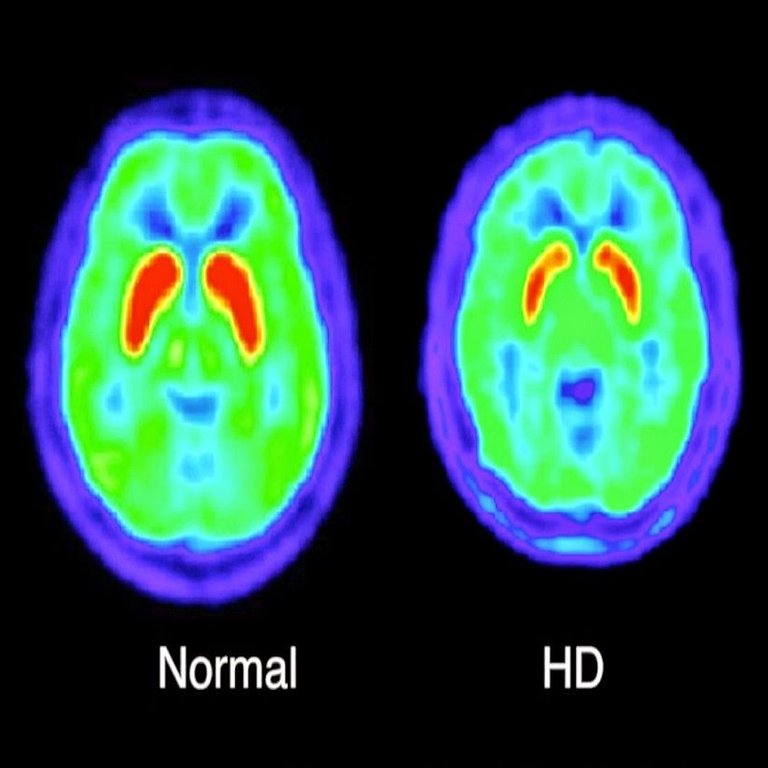My paternal grandmother died from this disease.
My father has this disease.
I have a 50/50 chance of having the gene that causes this disease.
Huntington's Disease is a fatal neurodegenerative genetic disorder. When I try to explain this disease in a basic manner, that is my go-to phrase. The simplest was I explain it to people is that it's a combination of Alzheimer's and Parkinson's Disease were symptoms can start showing at any age: 30s, 40s, 50s, 60s, etc. Approximately 30,000 people in the United States have confirmed symptoms, so this is classified as a rare disorder.

A few of the most noticeable and slowly developing recognizable symptoms are:
Mood swings (quick switches of anger), changes in personality (social to quiet, reserved to talkative, etc.)
Uneasy walking pattern
Involuntary movements of head & neck, feet, fingers, etc. This is called "chorea" (pronounced the same as "Korea")
Difficulties with swallowing
I unfortunately did not find out about my 50/50 risk until maybe three years ago. Sadly by the time I was old enough to have concrete memories with my grandmother, she was in a nursing home and unable to carry on conversations with me. Her movements would always be bigger when we would first walk in the nursing home and see her, so my dad always reassured me she knew who I was.
I always knew my grandmother was sick with Hunginton's, but the scary odds of having the gene were never discussed openly in my family. It was just assumed that I knew. My maternal grandmother had Alzheimer's Disease, and that wasn't discussed thoroughly in my family either. I just assumed these were both common disease most people's grandparents experienced. I went the majority of my young adult life thinking I would never develop this disease.
The process to be tested is expensive, grueling, and time consuming. You have to go through the process with another person who typically can't be a sibling or parent. If you do not choose another person, the court will appoint one for you. My dad went through the testing process a few years ago and it took about six months. Surprise! -most of the process is not covered by insurance.
You first meet with a genetic counselor who explains the testing process, makes sure you want to go through with it, and explains the disease to you. Then you see a psychologist who makes sure you are mentally stable to handle a positive result. (Positive means the test came back positive, meaning you have the disease. We like to see negative results!). Then you meet with the genetic counselor again after they've reviewed your psychology results to confirm you are mentally stable and you still want to go through with the testing.
Here's the kicker- the actual test for the disease is a simple blood test confirming you have the gene, and the numbers of gene repeats you have. The higher the repeat, the earlier you'll start developing symptoms. You have to wait at least 30 days for the blood test processing before you can meet with the genetic counselor again to confirm you want to receive your results. And finally, your results are given to you.
I have a theory that because there's not a lot of money to be made in this fatal disease, they have to squeeze all the money they can out of you throughout the testing process. Genetic counselors say it's because it's such a heavy, fatal disease, so they need to be very sure you can handle a positive result. However before I climb on this soap box, I'll explore my theory in a separate post.
Most people I have spoke to about this disease are unfamiliar with it. I wanted to share some very basic information about this disease and my personal connection to it to start the conversation. I am curious to know- have you heard of this disease before?
I've heard of the disease before, it's a genetic one. Neuronal stem cells can help, as a neuronal replacement in treating Hungtington's diesease.
Thank you for sharing @cupofblonde
Even genetic diseases can see benefit from a correctly prescribed homeopathic.
I feel like you are making a general statement without further examining the disease. A homeopathic treatment may be able to make the person experiencing Huntington's Disease more comfortable, but it won't cure the actual disease. What homeopathic treatment would you prescribe for Huntington's Disease?
It depends on their symptoms. Different people can experience the same disease differently and the correct homeopathic needs to be customized for each individual.
But you are right in that a homeopathic will not cure a genetic disease but can help with symptoms.